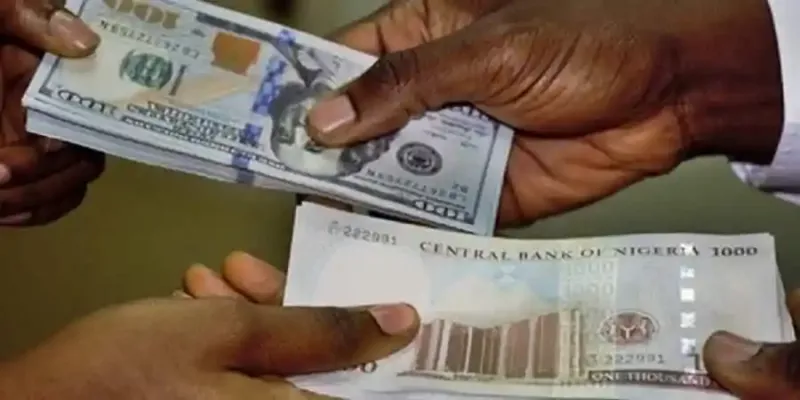Nigerians who took a bet against the local currency by converting some of their naira savings into dollars at the start of the year are currently in the money.
As of December 31, 2021, the exchange rate at the parallel market closed at about N565/$1. However, the rapid depreciation of the naira in recent months has seen the exchange rate fall to a whopping N720/$1 in the black market at the time of writing.
The massive depreciation of the currency over the last seven months has made those who took a bet against the naira earlier in the year massively rich when they convert their dollar savings back into naira.
This includes Nigerians with savings in domiciliary accounts, investment trading apps, cryptocurrency wallets, bonds, or any investments that are denominated in US dollars. Data from the CBN indicates the total amount of dollars deposited into domiciliary accounts of Nigerian banks as of December 2021 is an estimated $20 billion.
That amount was classified as N8.5 trillion by the CBN using its official exchange rate and would have been worth N11.3 trillion on the black market.
It is now worth N14.4 trillion in the same market assuming the exchange rate of N720/$1. Similarly, a $10,000 investment in January that was worth N5.65 million is now worth a whopping N7.2 million assuming the latest exchange rate.
Nigerians that saved in dollars
Uphorial conducted interviews with Nigerians who anticipated and protected their savings from a falling Naira. Due to the sensitivity of the subject, they only agreed to speak under the use of their first names.
Bennita told Uphorial that she began buying dollars monthly and saving in her domiciliary accounts in response to the price falling to N500/$ in 2021.
“It was like an eye opener for me when the dollar hit N500,” she said. “So I decided to transfer the majority of my savings to my domiciliary account. I also began to buy dollars every month when I get paid.”
She asserted that her actions were motivated by Nigeria’s failed monetary policy, as evidenced by skyrocketing inflation and a falling Naira.
“The CBN was more focused on the official rate, which was mostly inaccessible to most Nigerians, rather than the parallel market rate,” she explained. This meant trouble, so I had to take action to protect myself,” she said.
Another saver, Akintope, explained that most of his free cash is in dollars or cryptocurrency.
“I see no point in saving in Naira because it’s not a stable currency, I keep the majority of my savings in stable coins or cryptocurrency.”
He added, “Even though we have just experienced a bear market, there is more hope for crypto than there is for the Naira.”
What the traders are saying
According to Aminu Gwadabe, president of the Association of Bureau de Change Operators of Nigeria, more people are buying cryptocurrencies because they are losing faith in the naira.
“The USD rate on the crypto floor is used in determining the value of the local currency,” Gwadabe said.
People are buying dollars to purchase digital assets, Gwadabe added. “The USD buy rate on the crypto floor is moving at the same time with the local rate,”
In response to the Lawmaker’s summon of the Governor of the Central Bank of Nigeria, Godwin Emefiele, over the “free fall of the naira”, the bank said,
“The CBN remained committed to resolving the foreign exchange issues confronting the nation and as such has been working to manage both the demand and supply side challenges.”
The bank also stated that demand from manufacturers and individuals paying school and hospital fees abroad was high and that it was looking for ways to earn forex in the wake of falling oil prices.
Dollarization concerns
Although Nigerians holding the dollar as a hedge against Naira’s free fall is plausible, this action tends to accelerate the rate of dollarization of the Nigerian economy.
Dollarization usually occurs when the local currency has become unstable and has lost its utility as a medium of exchange in market transactions. However, the only fully dollarized countries remain Panama and Liberia.
When a government adopts foreign currency as the primary or sole legal tender, this is referred to as official dollarization.
On the other hand, unofficial dollarization occurs when individuals hold foreign currency bank deposits or notes to protect themselves from high domestic currency inflation, as is the case in Zimbabwe.




